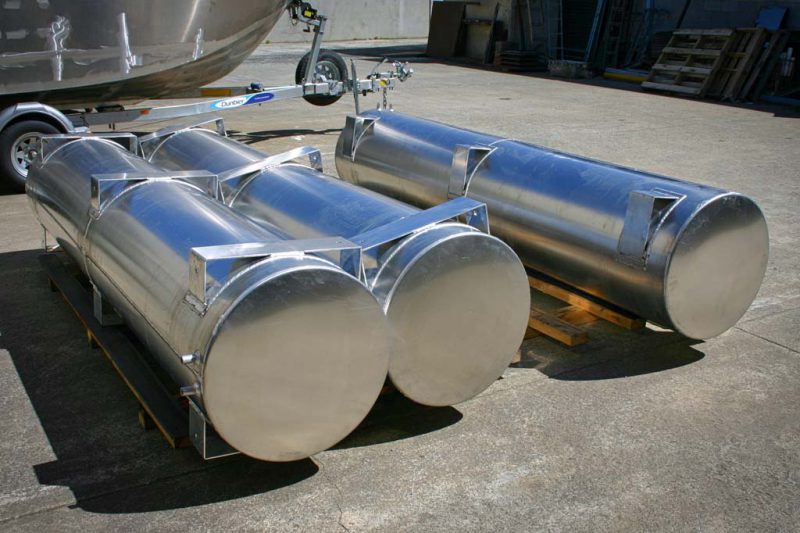Marine-Grade Aluminium Fabrication: Ensuring Safety and Performance at Sea
23 May 2025
Canfred Engineering specialises in marine-grade aluminium fabrication, engineered for high performance and corrosion resistance in maritime use.
Marine-grade aluminium fabrication improves the performance and structural safety of vessels operating under demanding sea conditions. It enables the construction of corrosion-resistant, lightweight structures that support fuel efficiency and long-term durability in maritime environments.
Material Standards in Marine-Grade Aluminium Fabrication
Marine-grade aluminium alloys are specifically selected for their ability to withstand the harsh marine environment. Their corrosion-resistant properties protect against long-term saltwater exposure, keeping vessel structures sound over time.
Manufacturing these materials to marine standards means ensuring the right type of aluminium is used for each structural requirement. This helps support reliable vessel performance and makes it easier to comply with marine regulations.
Marine-Grade Aluminium Fabrication in Vessel Safety
Accurate fabrication techniques reduce failure points and improve vessel stability in rough sea operations. Proper joint formation and precise structural alignment support even load distribution across buoyant chambers and hull reinforcements.
Compliance with marine engineering safety codes ensures vessel buoyancy, structural consistency, and resistance to fatigue and stress-induced deformation. This safeguards performance while maintaining passenger and cargo security at sea.
Innovations Driving Modern Marine-Grade Aluminium Fabrication
Modern marine fabrication continues to evolve with advancements that improve efficiency, precision, and quality. These developments allow faster production while meeting strict design and safety expectations.
• CNC Machining: CNC machining delivers high-precision shaping of aluminium components required in critical structural areas. It enhances consistency while reducing material waste and production errors.
• 3D Modelling: 3D modelling allows engineers to simulate stress responses before fabrication begins. This ensures that final designs align with structural and environmental demands.
• Automated Welding Systems: Automated systems increase weld uniformity and penetration, supporting stronger joints in marine assemblies. This reduces variability in fabrication and limits manual error.
• Digital Inspection Tools: Real-time inspection technology identifies inconsistencies and potential defects during production. This enhances fabrication accuracy and maintains quality assurance benchmarks.
• Material Traceability Systems: Tracking systems record alloy batch origins and treatment processes for compliance verification. These ensure materials meet classification society requirements for marine use.
• Modular Assembly Techniques: Modular construction accelerates build time and facilitates precision fabrication of large-scale marine structures. This approach supports greater control over fabrication stages and quality control.
Reliable Fabrication Tailored to Marine Standards
In aluminium marine engineering, structure and safety depend on the application of precise standards and controlled techniques. Canfred Engineering delivers compliant, efficient fabrication that meets project specifications and performance expectations across all marine contexts.
Discuss with us your custom marine-grade aluminium fabrication designs or other industrial plans, and receive fabrication engineered to exacting standards.
Related Blog: An Overview about Marine Grade Aluminium and Its Various Applications
Explore this blog for further information about the topic: A Guide to Understanding Marine Grade Aluminum
Optimized by: Netwizard SEO

